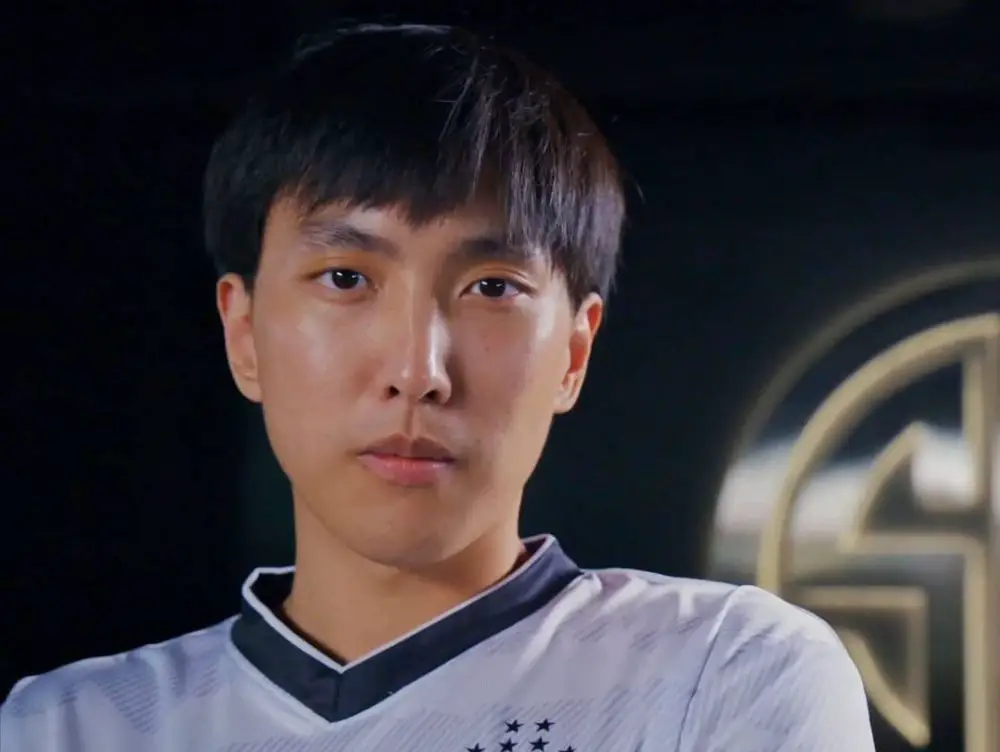In 2012, a career as a professional video game player seemed quixotic at best. Rather than a way to demonstrate excellence, entertain large audiences and compete to become the best in the world, most people considered video games a childish activity that distracted people from accomplishing more respectable life goals. This idea became a sticking point in the early life of pro-League of Legends player Yiliang “Doublelift” Peng, as his passion for video games and League of Legends in particular caused immense friction between him and his parents, who eventually kicked him out of the house at 18 years old.
Peng made an infamous post on Reddit in which he asked the video game community for support and advice, as he was now homeless. He eventually moved in with friend and journalist Travis Gafford, who himself would become a renowned esports journalist in large part due to his familiarity and unique accessibility to Peng and other professional League of Legends players. When Riot Games, the developer of League of Legends, began to create more tournaments and opportunities for competition, Peng decided to forgo a college education and fully pursue a career in the still-nascent esports industry.
After playing for several small teams, Peng finally got his big break when he joined Counter Logic Gaming (CLG), one of the premier esports teams not only within North America, but across the entire world. Although members of the community noticed Peng’s mechanical skills, both fellow professionals and viewers criticized him for his lack of game knowledge and questionable in-game decision-making. Even though Peng initially joined as a support player, the team decided that he would be better suited to play the attack damage carry position since the role focused more on mechanics and less on larger picture strategy, or “macro.”
Peng’s support player at the time, Steve “Chauster” Chau, who the community regarded as one of the game’s most knowledgeable players, famously mentored Peng throughout his early tenure on CLG, and the two became a respected and feared duo in the professional League of Legends circuit. However, even though CLG placed very well in all of the tournaments throughout 2012, first place eluded the team ever since Peng joined. The team qualified for the Season 2 World Championship only to lose out in the group stages of the tournament. Around this time, the stigma of having never won a championship became a thorn in Peng’s side that would continue to haunt him over the next few years of his career.
In 2013, Riot Games announced the start of the League Championship Series (LCS), a major turning point in the League of Legends competitive scene. Rather than competing in various tournaments over the course of a year, a set of eight teams would now play in a league similar to the NFL or NBA in a long regular season to determine seeding for a postseason playoff tournament. However, teams that did not place high enough would have to play in a relegation tournament against an amateur team to maintain their spot in the league. Even though many expected CLG to place highly due to its history of success, the team underwhelmed and had to play in the relegation tournament due to their poor placing.
The team failed to qualify for the World Championship in both 2013 or 2014. Fans largely blamed CLG’s poor management and unhealthy team culture, particularly its questionable roster moves and poor in-game synergy, despite the widely acknowledged individual skills of each member. At this point, Peng had become a popular but polarizing figure within the community for his abrasive trash talk before matches despite his team’s lack of results. His frustration with his teammates continued to increase as CLG continued to underwhelm in the LCS, and with the emergence of team-focused reality shows such as Chasing the Cup, the community began to criticize the way Peng interacted with his teammates.
In 2015, after another poor performance in the LCS Spring playoffs, longtime teammate Austin “Link” Shin released a lengthy statement in which he largely attributed CLG’s unhealthy team dynamic to Peng, alleging that despite Peng’s undeniable talent, his tendency to blame his teammates for CLG’s poor performances hindered team morale and resulted in a lack of in-game cooperation. Peng later admitted that during this time, he had contemplated retiring from professional League of Legends due to the community backlash and his apparent inability to attain the results he wanted despite his work ethic and skills. He decided to play throughout the summer of 2015, and if CLG performed poorly yet again, he would retire.
https://www.instagram.com/p/B8dFsvhhNw5/
Since CLG’s roster remained mostly unchanged from the spring, fans did not consider CLG a favorite to win the summer playoffs. The team gradually improved over the course of the season, however, with a second-place finish in the regular season. In the playoffs, despite the organization’s reputation as one that fell apart in high-pressure games, the team went undefeated in the playoffs and famously defeated North American rival Team SoloMid (TSM) to secure the team’s first LCS championship and Peng’s first-ever tournament win. Even though the team had a poor performance at the World Championship, the community still lauded CLG’s season as a massive success story and a turning point in Peng’s career.
Despite this watershed moment, CLG shocked the community in the offseason when it removed Peng from the team, CLG’s longest-standing member at the time and still widely considered the team’s best player. Echoing Link’s earlier statement, the team cited Peng’s attitude as a negative influence on the team atmosphere, which further reinforced his reputation as a toxic teammate. Peng quickly joined TSM and predictably, the rivalry between both long-standing North American franchises further intensified heading into 2016.
Peng’s career from 2016 onward saw him reach an unparalleled level of domestic success. Although TSM narrowly lost to CLG in the 2016 Spring Finals, the team became a dominant force for the rest of Peng’s tenure, winning several championships in a decisive fashion. Peng now shifted his main goals toward international success, which continued to elude him. Despite TSM’s high expectations going into both the 2016 and 2017 World Championships, the team failed to advance out of the group stages on both occasions, and the community labeled Peng an international choker for his inability to dominate foreign players in the same manner as his North American opponents.
TSM released Peng after the team’s inability to produce international results, and Peng joined the revamped Team Liquid roster, which began an era of even greater success for Peng. Not only did he help bring even more domestic championships to Team Liquid, but in 2019 the team placed second at the Mid-Season Invitational, the highest international placing for any North American team in history.
After such a long run of success, Peng began to struggle with motivation issues, which became apparent in the spring of 2020 as Team Liquid bombed the regular season and failed to qualify for the LCS playoffs. The team released him and Peng rejoined TSM for the summer, in which the team had a miraculous playoff run to once again become LCS champions for the first time since Peng first left the team in 2017. Peng finally retired during the offseason and continues to stream on Twitch and create content for his fans.
Throughout his career, Peng demonstrated a remarkable ability to persevere despite immense criticism and disappointment. Only a handful of other players in the entire world boast comparable career longevity to Peng, and very few players have achieved his level of success with multiple teams. In the early years of competitive League of Legends and the LCS, players often decided that the competitive scene lacked the stability of a regular career and many would quit after only a few poor tournament performances.
Peng’s confidence and belief in his skills made him one of the game’s most popular players, but he also drew criticism from fans who alleged that his ego would hold back the teams he played on. Yet for all the drama and community backlash Peng has endured, he not only cemented his competitive legacy, but also contributed to the overall growth of the entire esports industry as a result of his popularity and strong personal brand. No matter how many criticisms people might levy at him, they cannot dispute his impact on the game.
















